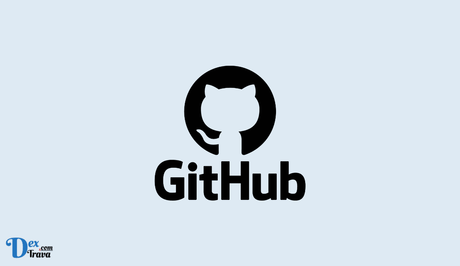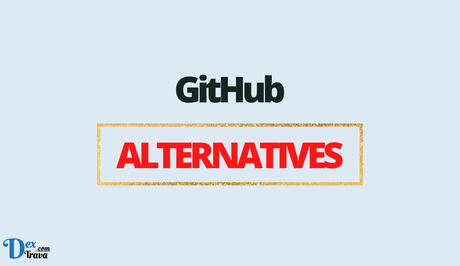GitHub is one of the most popular and widely used platforms for hosting and collaborating on software projects. It has become the de facto standard for developers and teams to share, manage, and collaborate on code. However, as with any popular service, there are always alternatives that offer unique features, pricing, and functionality when you cannot access GitHub. In this article, we'll explore some of the top GitHub alternatives available for developers and teams.

GitHub is a web-based platform for software development that has grown to become one of the most important tools for developers worldwide. Whether you are a beginner or an experienced developer, GitHub has a lot to offer.
What is GitHub?
GitHub is a code hosting platform for version control and collaboration. It allows developers to store their code in a central location and collaborate with others on their projects. GitHub was founded in 2008 by Chris Wanstrath, Tom Preston-Werner, and PJ Hyett, and was later acquired by Microsoft in 2018 for $7.5 billion.
GitHub is built on top of Git, a version control system created by Linus Torvalds in 2005. Git is a distributed version control system that allows developers to keep track of changes in their code over time. GitHub takes Git's basic functionality and adds collaboration tools that make it easy for developers to work together on the same codebase.
Also, See:
- 8 Best MyFlixer.to Alternatives
- How to Fix MyFlixer Not Working
How Does GitHub Work?
GitHub allows developers to create and store repositories, which are essentially folders that contain the code for a project. Developers can create repositories for any project they are working on, whether it's a personal project or a project for their company.
Once a repository is created, developers can add collaborators who can access the code and contribute to it. GitHub allows multiple people to work on the same codebase simultaneously, which makes it easy for teams to collaborate on projects.
GitHub also has a number of other features that make it easy to manage code, including issue tracking, pull requests, and code reviews. Issue tracking allows developers to track bugs and other issues in their code, while pull requests allow developers to submit changes to the codebase for review. Code reviews are an important part of the software development process and help ensure that the code is of high quality and meets the project's requirements.
Why Is GitHub Important?
GitHub is important for a number of reasons. For starters, it has become the de facto standard for version control and collaboration in the software development world. It is used by millions of developers worldwide, including some of the largest tech companies in the world.
GitHub also makes it easy for developers to showcase their work and build their reputation in the development community. Developers can share their code on GitHub and get feedback from other developers, which can help them improve their skills and build their portfolios.
7 Best Github Alternatives

-
GitLab
GitLab is a popular one among other alternatives to GitHub, offering a similar set of features and functionality. It provides a comprehensive DevOps platform that allows teams to manage their entire software development lifecycle, from code management to deployment. GitLab offers unlimited private repositories for free, making it an attractive option for small teams and startups.
One of the standout features of GitLab is its integrated CI/CD pipelines, which allow teams to automate their entire software release process. This includes building, testing, and deploying code changes. GitLab also includes a robust issue-tracking system, project management tools, and code review features, making it an excellent choice for teams looking for an all-in-one solution.
-
Bitbucket
Bitbucket is also one of the popular GitHub alternatives, especially for teams using the Atlassian suite of products. It offers similar functionality to GitHub, with unlimited private repositories for free, making it a great choice for small teams and startups.
One of the key advantages of Bitbucket is its seamless integration with other Atlassian products, such as Jira and Confluence. This allows teams to manage their entire software development process within the Atlassian suite, making it a great choice for teams already using these tools.
Bitbucket also offers excellent code review features, including inline commenting and pull request reviews. It also supports a wide range of integrations with other tools, such as Slack and Trello.
-
GitKraken
GitKraken is a popular Git client that offers a unique set of features and functionality. It provides a visually appealing interface that makes it easy to manage code and collaborate with team members. GitKraken also offers a built-in code editor, making it a great choice for developers who prefer to work within the same application.
One of the standout features of GitKraken is its integration with other tools, such as Jira, Trello, and Slack. It also offers a built-in merge conflict editor, which makes it easy to resolve conflicts that arise during the code review process.
GitKraken is available on Windows, Mac, and Linux, making it a great choice for teams using different operating systems.
-
SourceForge
SourceForge is an open-source software development platform that has been around since 1999. It offers a range of features, including code hosting, project management, and collaboration tools. SourceForge also has an extensive directory of open-source software projects, making it a great resource for developers looking for inspiration or contributing to existing projects.
One of the standout features of SourceForge is its support for a wide range of version control systems, including Git, SVN, and Mercurial. This makes it a great choice for teams who prefer to use a different version control system than Git.
SourceForge also offers a robust issue-tracking system, wikis, and forums, making it a great choice for open-source projects looking to engage with their community.
-
Launchpad
Launchpad is an open-source software development platform that is primarily used by Ubuntu and other Debian-based Linux distributions. It offers a range of features, including code hosting, bug tracking, and translation tools. Launchpad also has an extensive directory of open-source software projects, making it a great resource for developers.
One of the standout features of Launchpad is its support for packaging and distributing software for Ubuntu and other Debian-based Linux distributions. This makes it a great choice for developers looking to distribute their software to a specific operating system.
Launchpad also offers a powerful bug tracking system, which allows teams to track and prioritize bugs, as well as assign them to team members for resolution. It also offers translation tools, making it a great choice for open-source projects looking to translate their software into multiple languages.
-
Phabricator
Phabricator is an open-source software development platform that offers a range of features, including code hosting, project management, and collaboration tools. It also has a strong focus on code review, with a built-in code review tool that allows teams to review and discuss code changes easily.
One of the standout features of Phabricator is its support for multiple version control systems, including Git, SVN, and Mercurial. It also offers a powerful search engine, making it easy to find and filter through code and project data.
Phabricator also offers a range of other features, including a task management system, wikis, and a powerful API for integration with other tools.
-
Gitea
Gitea is an open-source Git hosting solution that offers a lightweight and easy-to-use interface. It is designed to be fast and simple, making it a great choice for small teams and personal projects.
One of the standout features of Gitea is its focus on privacy and security, with built-in features such as two-factor authentication and SSH key management. It also offers a range of integrations with other tools, such as Slack and Discord.
Gitea is available on Windows, Mac, and Linux, making it a great choice for teams using different operating systems.
Conclusion
There are many GitHub alternatives available for developers and teams, each offering unique features and functionality. GitLab, Bitbucket, GitKraken, SourceForge, Launchpad, Phabricator, and Gitea are just some of the many options available. When choosing a platform, it is important to consider your specific needs and requirements, such as project size, team size, and budget. Ultimately, the best choice will depend on the individual needs and preferences of each team or developer.
Similar posts:
- 8 Best MyFlixer.to Alternatives
- How to Keep Your Construction Team Connected
- Fixed: GitHub Down, Not Working
- 4 App Development Tools You Need to Use
- 7 Best Free Google Classroom Alternatives
